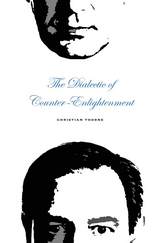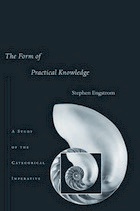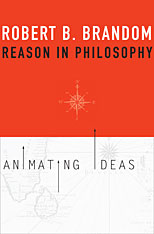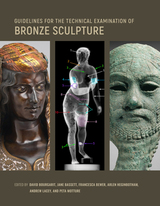
In this wide-ranging, ambitious, and engaging study, Christian Thorne confronts the history and enduring legacy of anti-foundationalist thought.
Anti-foundationalism—the skeptical line of thought that contends our beliefs cannot be authoritatively grounded and that most of what passes for knowledge is a sham—has become one of the dominant positions in contemporary criticism. Thorne argues that despite its ascendance, anti-foundationalism is wrong. In The Dialectic of Counter-Enlightenment, he uses deft readings of a range of texts to offer new perspectives on the ongoing clash between philosophy and comprehensive doubt.
The problem with anti-foundationalism is not, as is often thought, that it radiates uncertainty or will unglue the university, but instead that it is a system of thought—with set habits that generate unearned certainties. The shelves are full of histories of modern philosophy, but the history of the resistance to philosophical thought remains to be told. At its heart, The Dialectic of Counter-Enlightenment is a plea not to take doubt at its word—a plea for the return of a vanished philosophical intelligence and for the retirement of an anti-Enlightenment thinking that commits, over and over again, the very crimes that it lays at Enlightenment’s door.

Immanuel Kant’s claim that the categorical imperative of morality is based in practical reason has long been a source of puzzlement and doubt, even for sympathetic interpreters. Kant’s own explanations, which mainly concern his often-criticized formula of universal law, are laconic and obscure, leading interpreters to dismiss them in favor of less ambitious claims involving his other famous formulas.
In The Form of Practical Knowledge, Stephen Engstrom provides an illuminating new interpretation of the categorical imperative, arguing that we have exaggerated and misconceived Kant’s break with tradition: Kant never departs from the classical conception of practical reason as a capacity for knowledge of the good. His distinctive contribution is the idea that morality’s imperatives express the form of such knowledge.
By developing an account of practical knowledge that situates Kant’s ethics within his broader epistemology and rethinks numerous topics in his moral psychology and in his account of practical reason (including desire, intention, choice, will, as well as pleasure, happiness, and the good), Engstrom’s work promises to deepen and to reshape our understanding of Kantian ethics.

In Looking Away, Rei Terada revisits debates about appearance and reality in order to make a startling claim: that the purpose of such debates is to police feelings of dissatisfaction with the given world.
Focusing on romantic and post-romantic thought after Kant, Terada argues that acceptance of the world “as is” is coerced by canonical epistemology and aesthetics. In guilty evasions of this coercion, post-Kantian thinkers cultivate fleeting, aberrant appearances, perceptual experiences that do not present themselves as facts to be accepted and therefore become images of freedom. This “phenomenophilia,” she suggests, informs romanticism and subsequent philosophical thought with a nascent queer theory.
Through graceful readings of Coleridge’s obsession with perceptual ephemera, or “spectra,” recorded in his Notebooks; of Kant’s efforts in his First and Third Critiques to come to terms with the given world; of Nietzsche’s responses to Kant and his meditations on ephemeral phenomenal experiences; and of Adorno’s interpretations of both Nietzsche and Kant, Terada proposes that the connection between dissatisfaction and ephemeral phenomenality reveals a hitherto-unknown alternative to aesthetics that expresses our right to desire something other than experience “as is,” even those parts of it that really cannot be otherwise.

Transcendentalism never came to an end in America. It just went underground for a stretch, but is back in full force in Robert Brandom’s new book. Brandom takes up Kant and Hegel and explores their contemporary significance as if little time had expired since intellectuals gathered around Emerson in Concord to discuss reason and idealism, selves, freedom, and community. Brandom’s discussion belongs to a venerable tradition that distinguishes us as rational animals, and philosophy by its concern to understand, articulate, and explain the notion of reason that is thereby cast in that crucial demarcating role.
An emphasis on our capacity to reason, rather than merely to represent, has been growing in philosophy over the last thirty years, and Robert Brandom has been at the center of this development. Reason in Philosophy is the first book that gives a succinct overview of his understanding of the role of reason as the structure at once of our minds and our meanings—what constitutes us as free, responsible agents. The job of philosophy is to introduce concepts and develop expressive tools for expanding our self-consciousness as sapients: explicit awareness of our discursive activity of thinking and acting, in the sciences, politics, and the arts. This is a paradigmatic work of contemporary philosophy.
READERS
Browse our collection.
PUBLISHERS
See BiblioVault's publisher services.
STUDENT SERVICES
Files for college accessibility offices.
UChicago Accessibility Resources
home | accessibility | search | about | contact us
BiblioVault ® 2001 - 2025
The University of Chicago Press









